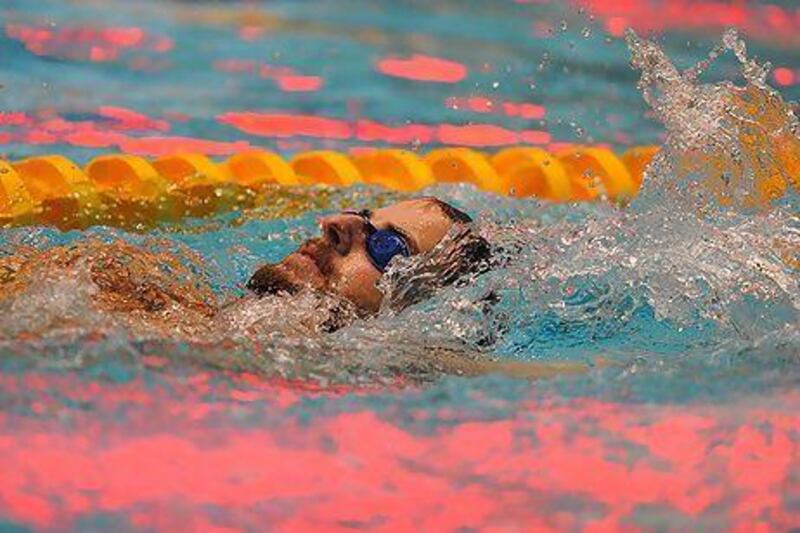SYDNEY // Australian swimming faces a comprehensive overhaul following two reports on Tuedsay which blamed a "toxic" culture compounded by poor management and discipline for the Olympic team's poor showing at the 2012 London Games.
The Bluestone Review, commissioned by the sport's governing body, Swimming Australia, after the nation's worst performance in the pool for 20 years, found that athletes in London abused alcohol and prescription drugs and that instances of bullying, hazing and "peer intimidation" within the squad went unchecked.
The scathing report by Pippa Grange, a Melbourne business consultant, also concluded that an overzealous pursuit of gold medals created unrealistic expectations and – once the predicted haul failed to materialise – sent team morale plummeting.
Australians are accustomed to their athletes ruling the pool during the first week of Olympic Games, but in London the team won only one gold medal – in the women's 4x100m freestyle relay – and, for the first time since Montreal in 1976, failed to secure a single individual gold. The eventual total included six silver and three bronze.
Swimming Australia welcomed the review – along with a separate report on the sport's governance – and pledged to implement the recommendations. The president of the Australian Olympic Committee (AOC), John Coates, said if the claims of drugs misuse were substantiated, the athletes involved would face financial sanctions.
According to the Bluestone Review, the trouble began at a pre-Games training camp, where senior members of the men's 4x100m freestyle relay team devised an initiation ritual which involved taking the prescription sleeping pill Zolpidem, branded in Australia as Stilnox. The AOC had expressly banned the drug before the Games.
"When competition began, morale began to drop once the team started to lose in the first few days", said the report. "People felt the failure very keenly while they were still in the midst of performance. It was a contagious feeling that had a high impact on the mood.
"Some athletes let their emotion play out as bravado, withdrawal, disinterest and sulking. This tension was not nipped in the bud – indeed it was heightened with scuttlebutt [gossip] and assumptions and diagnoses of doom from the media and the pool deck: things aren't going well."
Far from being supported by their teammates, swimmers described London as the "lonely Olympics" and, Grange found, at its least attractive, the team dynamic became like a schoolyard clamour for attention and influence.
Focus was placed on individualised rather than team training regimes, and less high-profile swimmers resented what they saw as the "glorification of a few" such as James Magnussen, the 100-metre freestyle world champion, known as "The Missile".
A lack of leadership, meanwhile, led to bad behaviour going uncurbed and "situations [being] left to bleed".
There were sufficient incidents of drunkenness, drug abuse, bullying, deceit and breach of curfews "to warrant a strong, collective leadership response". No such collective action was taken.
The team's head coach, Leigh Nugent, said yesterday that such problems "were not overtly obvious" to him in London.
Despite the report's findings, he said he was confident that he would keep his job, and he would be happy to undergo an intensive leadership programme, as recommended by Grange.
The second review, by Warwick Smith, a former federal sports minister, recommended governance reforms and an overhaul of swimming's high-performance programmes. It called for Swimming Australia to appoint a high-performance director to report directly to the chief executive officer.
Barclay Nettlefold, Swimming Australia's president, said the sport needed to regain the country's respect and rebuild its credibility.
"Before we look at winning gold medals, we want to win back the admiration of the nation, and we want to engage with our swimming community like never before at every level," he said in a statement.
Libby Trickett, a respected member of the London swimming squad, told Fox News: "I really hope this is an opportunity for us to draw a line in the sand, so to speak, and acknowledge our mistakes and recognise what we did wrong, but also recognise we can do better, so we can make a really positive shift for the future of the sport."
Follow us
[ @SprtNationalUAE ]






